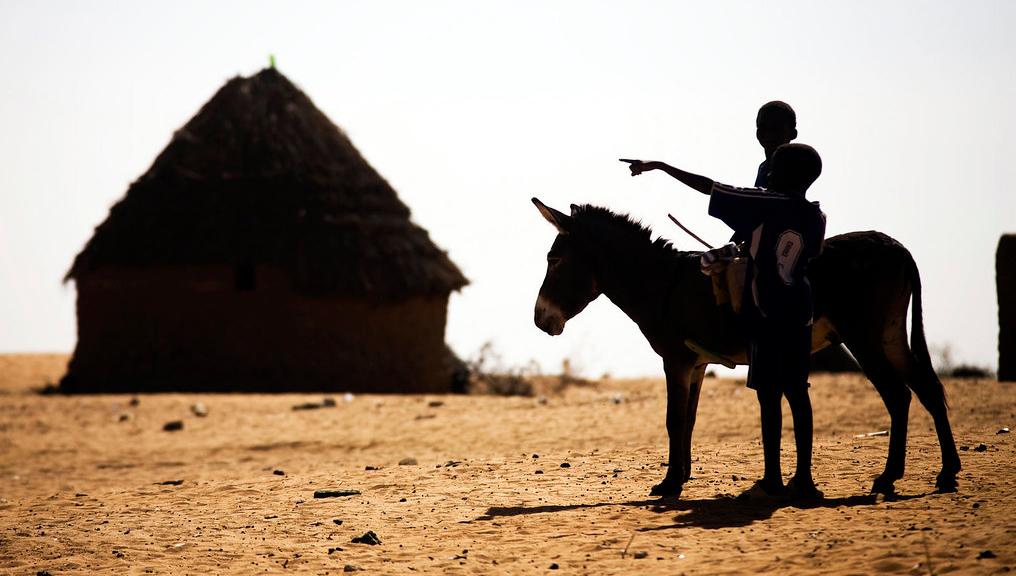Libya’s political history is often framed as 42 years of stateless authoritarianism. Taking a closer look at Libya’s gradual reintegration into the global economy, Matteo Capasso argues this framing overlooks the newly assumed role of war in the maintenance of US imperialism.
On 9 November 2020, the umpteenth United Nations Support Mission in Libya-led dialogue was launched in Tunis with the goal of bringing lasting peace to the war-torn country, and only ten days later UK Prime Minister Boris Johnson announced a major defence funding boost to extend British international influence: to make British people safe and to create jobs. At first glance, there seems to be no clear relationship between these two events. However, for a truly global and interconnected understanding we should look more closely at the changing nature of the global economy and the role of war-torn countries of the global South within it.
The trope of statelessness
Libya’s political economy appears to have turned into a hotspot of rampant corruption, spiralling violence and market-slavery. From eggs and poultry to oil and financial credit, the country’s economy is in the tight control of warlords and armed groups who enrich themselves while leaving the rest of the country to cope with increasing electricity and water cuts in the midst of an ongoing pandemic. How did Libya reach this place?
There is an increasing tendency among mainstream policy analysts and academics to interpret the political economy of Libya’s war as stemming from domestic and traditional weaknesses of the country – that is, the long-standing absence of modern state structures and a functioning market-led economy. Going forward from the Ottoman times (pre-1912) to the present, Libya has been described as a society without a state, a country whose past keeps haunting the present. This situation is supposed to show not only how Libya’s twentieth-century history differed from other ‘despotic’ Arab regimes, but also how its trajectory was uniquely stateless, particularly during the rule of Muammar Qaddafi.
To understand Libya’s destruction now, therefore, one needs to brush up on its history of statelessness and the return of ancient tribal-like structures, oil dependency and its related dynamics. Following this logic, if Libya was stateless before 2011, since then it has become a failed state.
By stressing the unchanging nature of the country, the idea of a stateless Libya creates an image of chaos and weakness that can only be rectified by embracing neoliberal economic and political ideas. Such analyses, however, present important limitations.
Decolonisation and its demise
The first problematic aspect lies in how these frames isolate Libya’s political formation since 1969 from the political, economic and ideological ferment that marked the age of decolonisation. Libyan revolutionaries in 1969 saw national liberation as requiring a major restructuring of the political and economic structures that enabled the US-led global order to dominate the global South. Numerous initiatives were undertaken to improve the living conditions of the population, including the nationalisation of the oil industry in 1973, the construction of infrastructural and redistributive programmes, as well as the pursuit of projects of regional integration and the support of revolutionary movements worldwide, including in Angola, Mozambique, Palestine and South Africa.
In such a context, the response of the US and its allies was the adoption of a set of legal, military and economic measures to weaken the ambitions of the Libyan revolution. The long military confrontation in Chad and the imposition of international sanctions – for more than a decade since 1992 – represented pivotal moments. In this context of military defeat, international isolation and the constant threat of war, the state-led development experienced in the early years of the revolution gradually transformed into less progressive socio-economic structures. What emerged were socio-economic inequalities, the increasing use of political repression toward the population, rising unemployment and the revival of tribal affiliations as tools of societal control.
Tracing the gradual reintegration of Libya into the global economy is important because it questions the prevalent analyses that frame Libya’s political past as 42 years of stateless authoritarianism. This is not a simple academic exercise but a necessary analytical endeavour to avoid a priori negative representations of Libya’s past, while also not falling into the trap of romanticising it.
In such a context, the protests that took place in 2011 came in a moment of popular discontent that coincided with Libya’s progressive reintegration into the US-led global order and economy. A class of merchants arose whose primary interest was to extract wealth from national resources, without reinvesting in the development of their country or in regional developmental initiatives. The subsequent NATO intervention should be understood not only in relation to the numerous efforts used to undermine the country’s revolutionary ambitions since the early 1970s, but also as a new mode of integrating Libya into the global economy via war and militarism.
War as the New Normal
For these reasons, the second important limitation of dominant analyses lies in the way they overlook the newly assumed role of war in the maintenance of the US imperialism, foreclosing the possibility to develop more progressive political alternatives. Following the failed invasion of Iraq, the US and its allies have stopped invading countries to turn them into neoliberal paradises. The New Normal is now represented by the mushrooming of endless wars in countries of the global South. And how is Libya being rearticulated into the global economy? Weapons and armaments are sold to the various factions and countries in the region (such as Egypt, Turkey, the UAE), the foreign mercenaries hired to fight, surveillance technologies employed to control migrants and the outright deaths of Libyans and refugees at sea.
All these dynamics fill the coffers of private military companies, military contractors and arms industries of the countries in the global North, and – most importantly – they prevent the construction of political solidarity among states and the masses from the African continent. For these reasons, a closer look is required to grasp how Libya’s war is tightly linked to the defence funding boost in the UK. If the defence industry has become one of the most pumped up and supported sectors in the creation of jobs in the global North, how are the actual goods used? Where are these arms and weapons, technological software and infrastructures being deployed? We need to probe whether the global South is becoming a testing laboratory.
Click the link here to read Matteo’s full article published in the Review of African Political Economy.
Photo: Libyan Protesters Demand Security in Tripoli. Credit: United Nations, Tripoli, Libya. UN Photo/Iason Foounten.





